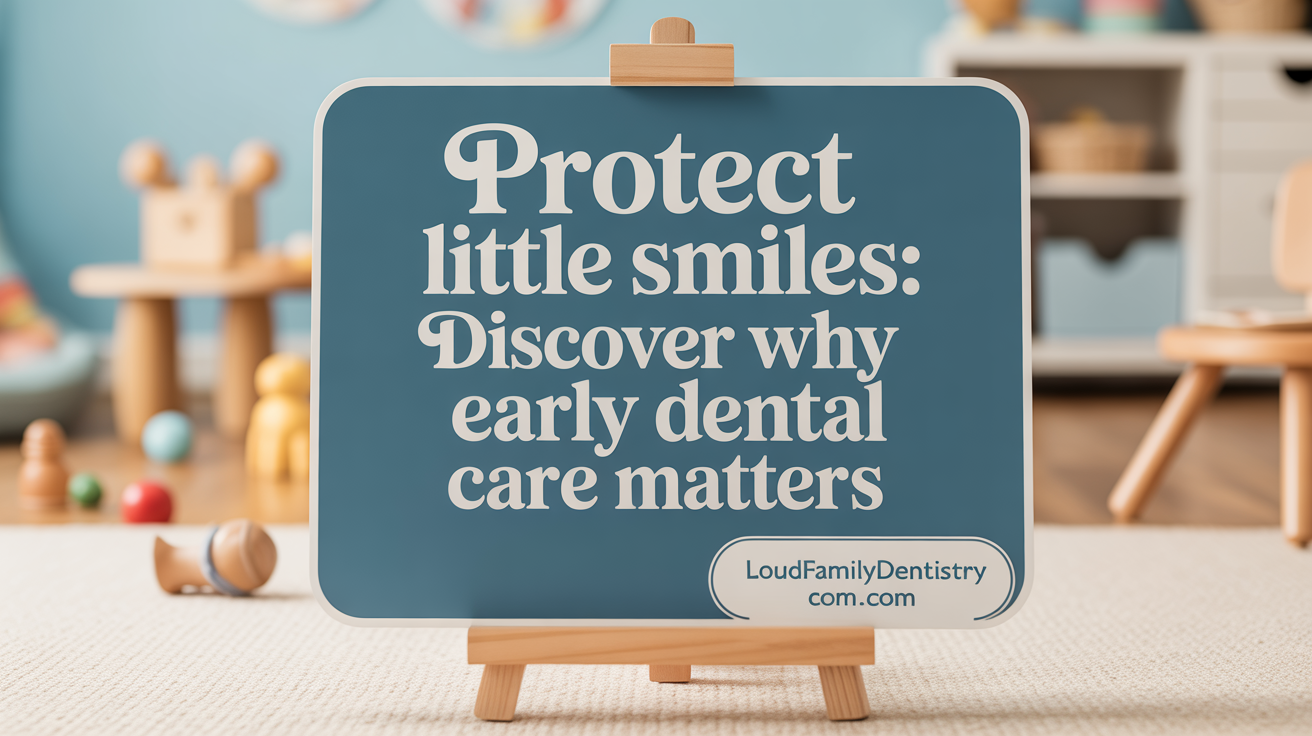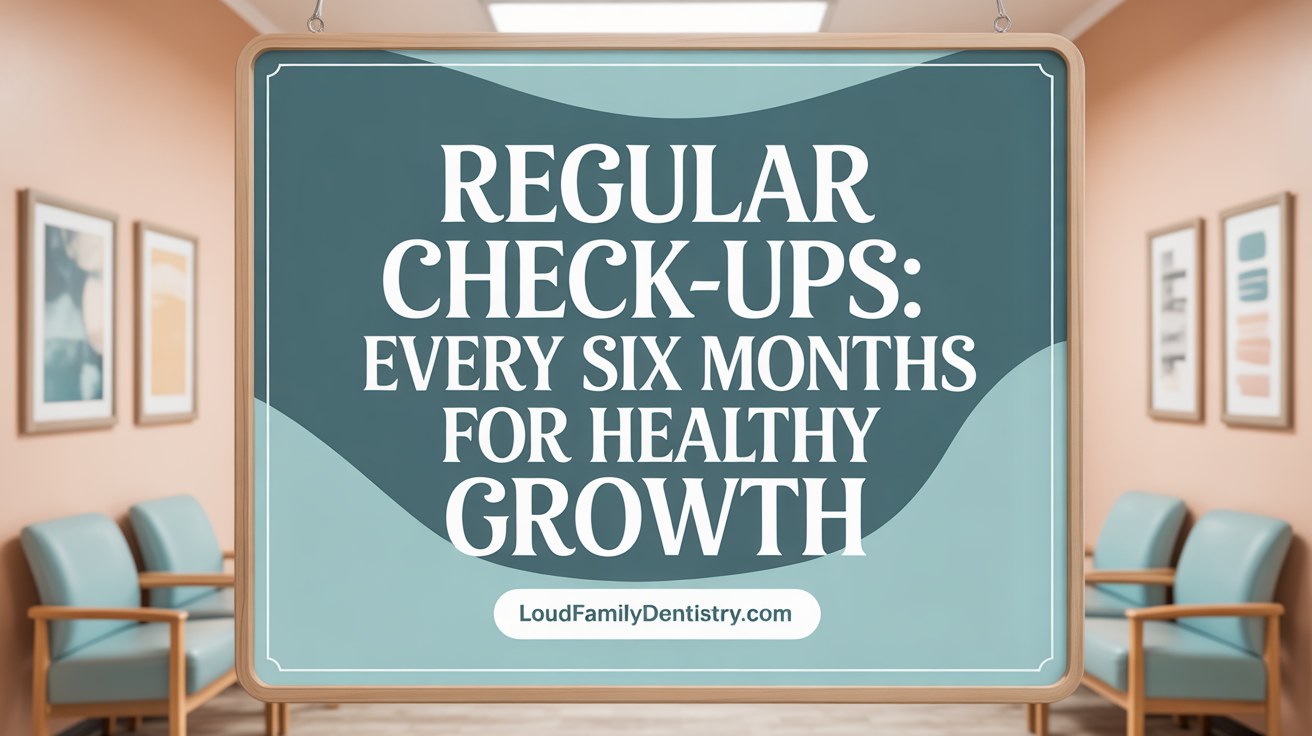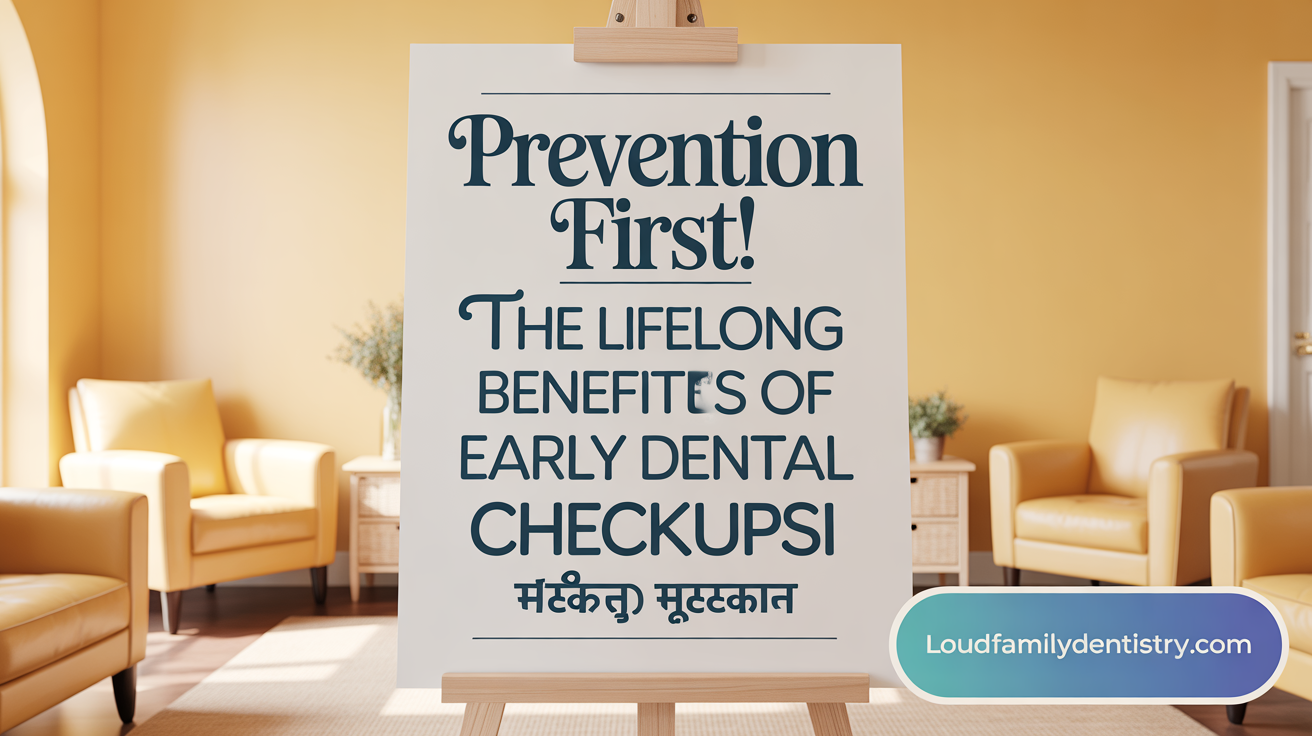Understanding the Importance of Early Dental Care
Early pediatric dental visits play a fundamental role in ensuring the health and development of your child's teeth and overall well-being. These visits are not just about cleaning teeth; they are crucial preventive measures that set the stage for a lifetime of healthy smiles. This article explores why beginning dental care early is vital, how it benefits your child, and practical tips for parents to prepare children for these essential appointments.
Why Early Dental Visits Are Essential for Children’s Health

Why are dental visits important for children?
Dental visits play a crucial role in a child's overall health and well-being. They help in early detection of cavities and tooth decay, which are the most common chronic diseases among children. When issues like decay or misalignment are identified early, interventions can be straightforward and less invasive, preventing discomfort and complex procedures later.
The American Dental Association and the American Academy of Pediatrics recommend that children have their first dental visit by their first birthday or when their first tooth erupts. This early introduction familiarizes children with the dental environment, reduces anxiety, and promotes positive attitudes toward oral health.
During these visits, dental professionals can apply preventive treatments such as fluoride varnishes and sealants that strengthen enamel and prevent cavities. Besides treatment, these visits are vital educational opportunities, helping caregivers learn effective oral hygiene practices, including brushing, flossing, and making healthy dietary choices.
For children with special needs, early dental care ensures tailored, compassionate approaches that address unique challenges and promote confidence in dental visits. Regular checkups also support monitoring of jaw development and aid in the early identification of potential orthodontic issues.
Overall, consistent dental visits from a young age foster lifelong habits, reduce future dental costs, and contribute to better general health, emphasizing their importance in every child's development.
Recommended Timing and Frequency of Pediatric Dental Visits

At what age should a child begin seeing a pediatric dentist?
According to the American Academy of Pediatric Dentistry, a child's first dental visit should occur by their first birthday or within six months after their first tooth emerges. This early visit is usually brief, lasting about 30 to 45 minutes, and involves a gentle oral examination, cleaning, and guidance for parents on caring for their child's teeth.
Starting dental visits early helps in establishing good oral hygiene habits, preventing cavities, and familiarizing the child with the dental environment. It also provides an opportunity for the dentist to assess growth and development, identify potential issues like misalignment or decay early on, and provide tailored advice for dietary and oral care.
Frequency of dental check-ups after the first visit
After the initial appointment, regular check-ups are recommended every six months. These visits allow the dentist to monitor the child's dental development, reinforce good habits, and perform preventive treatments such as fluoride applications and sealants. Some children with specific needs or higher risk factors may require more frequent visits.
Typical procedures during initial visits
Initial pediatric dental visits focus on prevention and education. The dentist conducts a gentle examination, cleans the teeth thoroughly, and applies fluoride treatments or sealants if needed to protect against decay. These visits also serve as educational sessions where parents learn proper brushing and flossing techniques and receive dietary guidance to support healthy teeth.
How early visits build comfort and reduce anxiety
Introducing young children to the dental environment early helps reduce fear and anxiety associated with dental visits. Pediatric dentists use child-friendly language, gentle techniques, and colorful, non-intimidating technology to create a positive experience. Building trust and familiarity at a young age encourages children to view dental care as a routine part of their health, fostering lifelong good habits.
Regular early visits play a crucial role in preventive care, ensuring children grow up with healthy smiles and less fear of dental treatments.
Benefits of Early Dental Checkups for Prevention and Development

What are the benefits of early dental checkups for children?
Early dental visits play a vital role in maintaining children's oral health. They enable early detection of cavities, misalignments, and developmental issues, making treatments more manageable and less invasive. By catching problems early, dentists can offer prompt interventions, reducing future discomfort and complex procedures.
Preventive treatments such as fluoride applications and sealants are commonly part of these visits. They reinforce tooth enamel and protect against decay, especially in hard-to-reach areas. Regular checkups also allow for monitoring the growth of teeth and jaws, facilitating early orthodontic assessment when necessary.
An important aspect of these visits is the role of primary or baby teeth. Despite their temporary nature, they are essential for proper chewing, speech development, and maintaining space for permanent teeth. Healthy baby teeth prevent misalignments and other long-term dental issues.
Childhood dental checkups form a foundation for lifelong oral health. They help establish good habits, reduce fears associated with dental care, and foster positive attitudes toward maintaining healthy smiles. Additionally, early interventions are cost-effective, preventing the need for extensive dental work later on.
Overall, visiting the dentist early supports optimal growth, prevents many common dental problems, and constructs a healthy basis for future dental health.
Establishing Healthy Oral Hygiene Habits Through Early Visits
How do early dental visits contribute to establishing healthy habits in children?
Early dental visits are crucial in helping children develop good oral hygiene routines that last a lifetime. When children visit the dentist starting around their first birthday or when their first tooth erupts, they begin to understand the importance of brushing, flossing, and regular dental care.
During these visits, dentists teach children age-appropriate techniques that make oral care easier and more effective. These lessons can include demonstrating proper brushing angles, the correct way to floss, and how to keep teeth clean through fun, easy-to-understand instructions.
Beyond just cleaning, early visits provide guidance on nutritious diets that support healthy teeth. Dental professionals advise parents on reducing sugary foods and drinks, which can lead to cavities, and encourage balanced choices that strengthen enamel.
Building trust between children and their dental care providers is another vital benefit. Regular visits help children become familiar with the dental environment, reducing fear and anxiety over time. When children associate dental visits with positive experiences, they are more likely to develop responsible habits and look forward to future check-ups.
Creating what is known as a "dental home" by the first year of life ensures ongoing education and support for maintaining oral health. This continuous relationship allows dentists to monitor development, address concerns early, and reinforce good habits consistently.
Overall, early dental visits set the stage for a responsible attitude towards oral health, helping children understand that caring for their teeth is an essential and normal part of their daily routine. These habits not only prevent common dental issues like cavities and gum disease but also foster confidence in caring for their smiles from a young age.
Practical Tips for Parents to Prepare Children for Dental Appointments
What guidance can help parents prepare their children for dental appointments?
Parents can make dental visits less intimidating and more positive by starting early and using friendly, honest language to explain what will happen. Using visual aids such as picture books, videos, or toys that depict dental visits can help children understand and feel more comfortable. Role-playing at home allows kids to practice sitting in a dental chair, opening their mouth, and talking about their feelings, which reduces fear. Bringing a favorite toy or blanket to the appointment offers comfort and familiarity. Maintaining a calm demeanor and praising children for their bravery can foster confidence. Scheduling the first visit by age one or soon after their first tooth erupts ensures early familiarization. Creating a cheerful and reassuring environment during visits helps make dental care a positive routine.
What role does early dental care play in preventing dental issues?
Early dental visits help detect problems like cavities, misalignment, or developmental concerns early, often before children experience pain. These visits establish good oral hygiene habits, including proper brushing, flossing, and dietary choices, supporting long-term dental health. Frequent check-ups also allow professionals to provide preventive treatments such as fluoride applications and sealants, which strengthen teeth and prevent decay. Familiarizing children with the dental environment from a young age helps lessen dental anxiety, making future visits smoother. Early intervention can reduce the need for extensive treatments later, saving costs and discomfort. Furthermore, early dental care promotes better speech development, proper jaw growth, and self-esteem by maintaining healthy baby teeth that guide permanent teeth. Overall, early dental intervention fosters a lifetime of healthy smiles and reinforces the significance of regular dental care.
Ensuring a Lifetime of Healthy Smiles
Early pediatric dental visits are a cornerstone of your child's overall health and development. Beginning dental care by the first year of age or within six months of the first tooth eruption allows for timely detection of potential issues, preventive care, and the establishment of healthy oral hygiene habits. These visits not only prevent painful and costly dental problems but also foster positive attitudes and comfort with dental care that lasts through adulthood. By preparing your child and maintaining regular check-ups, you set them on a path to confident, healthy smiles—supporting their growth, speech, nutrition, and self-esteem along the way.
References
- Why Regular Pediatric Dental Visits are Crucial for Your Child's Health
- Early Dental Visits: When to Start | Eastside Pediatric Dental
- Why Early Pediatric Dental Visits Matter for Your Child
- Why Early Dental Visits Matter for Your Child's Oral Health
- Benefits of Early Dental Visits for Infants and Toddlers
- The Crucial Role of Pediatric Dentistry in Shaping Lifelong Oral Health
- Why early childhood dental visits are important
- Bright Beginnings: Why Early Dental Visits Matter for Your Child
- The Importance of Your Child's First Dental Visit
